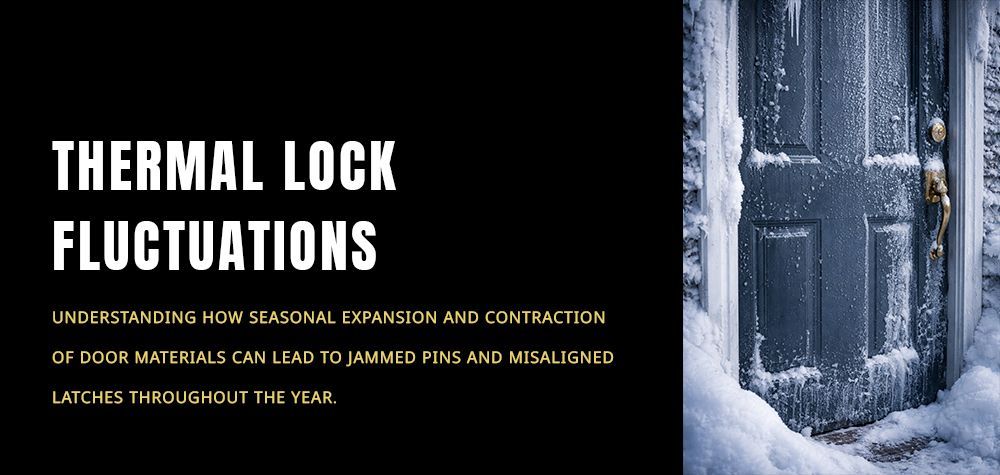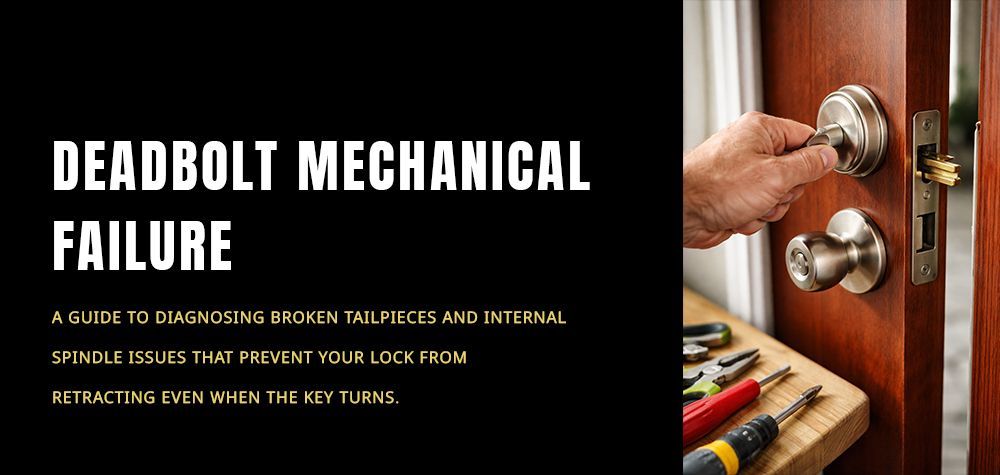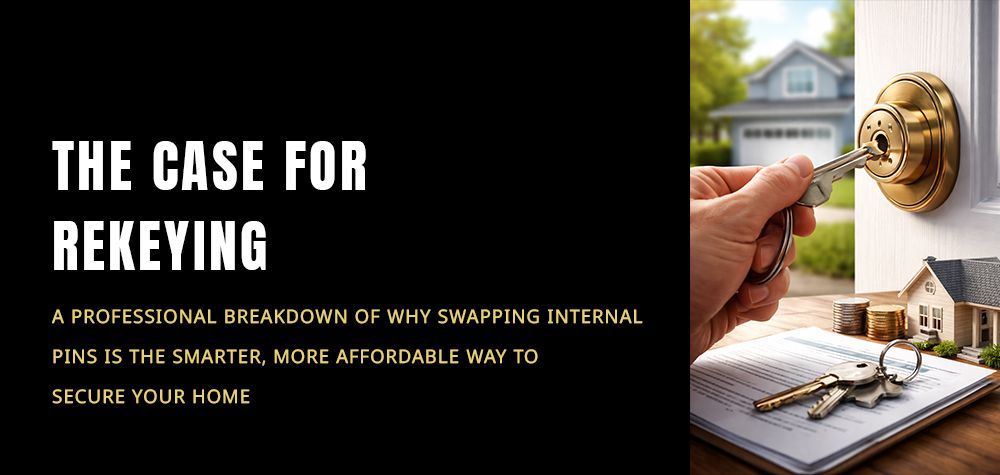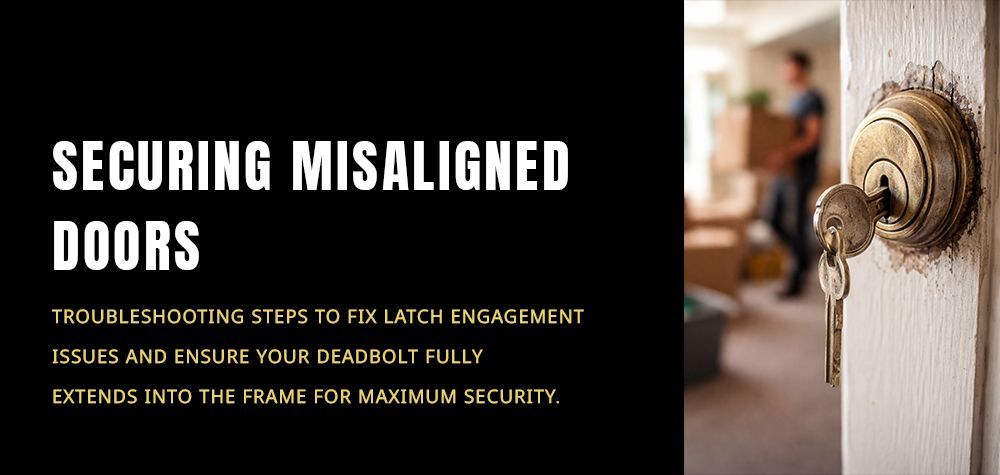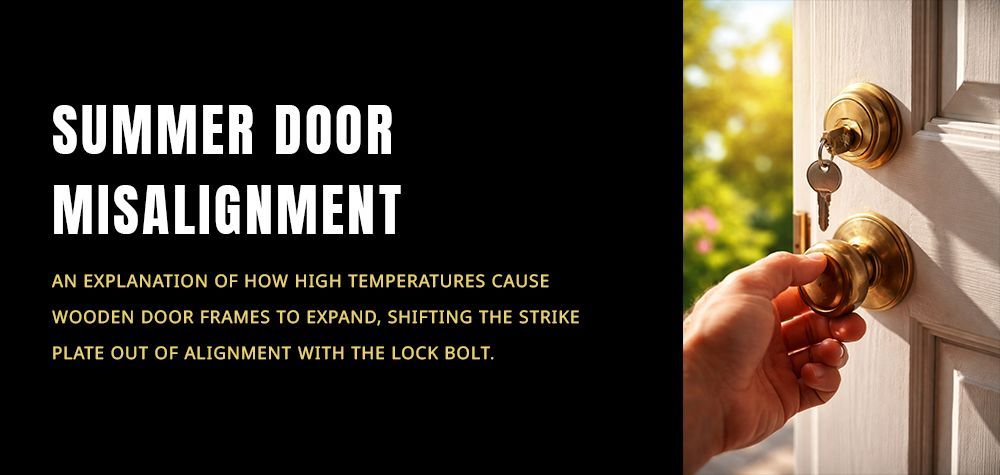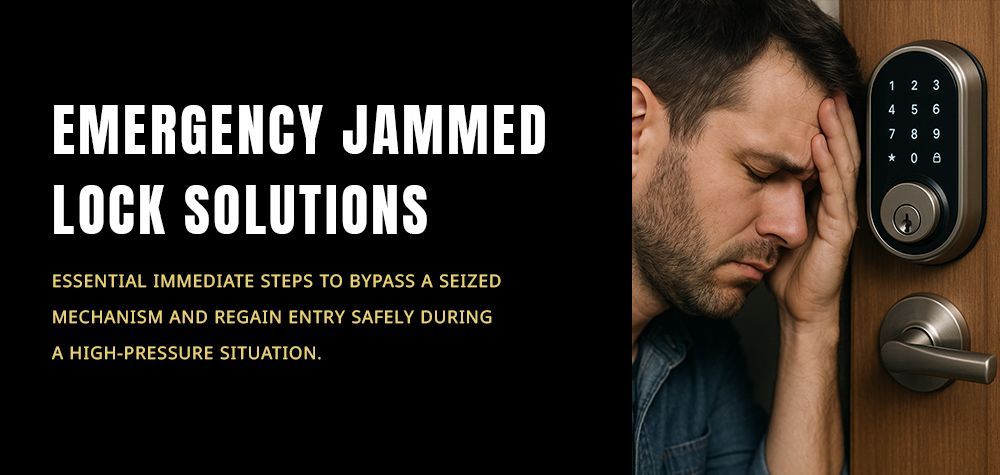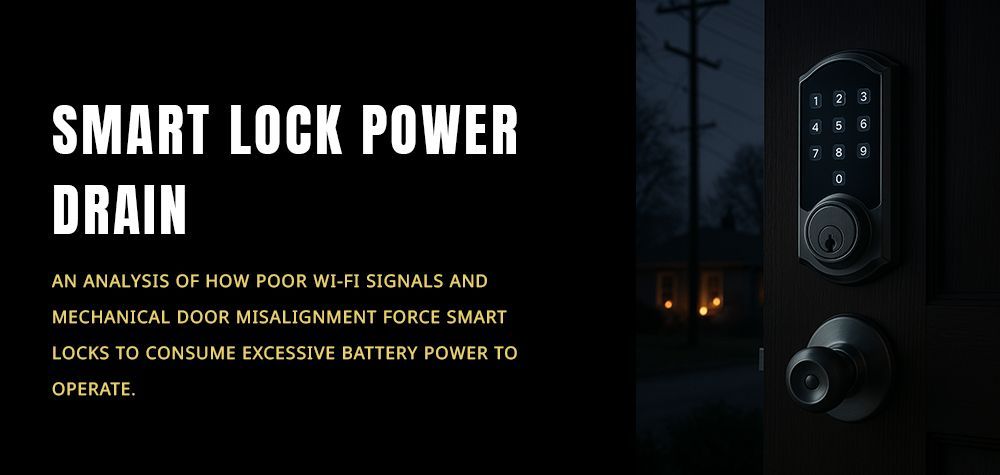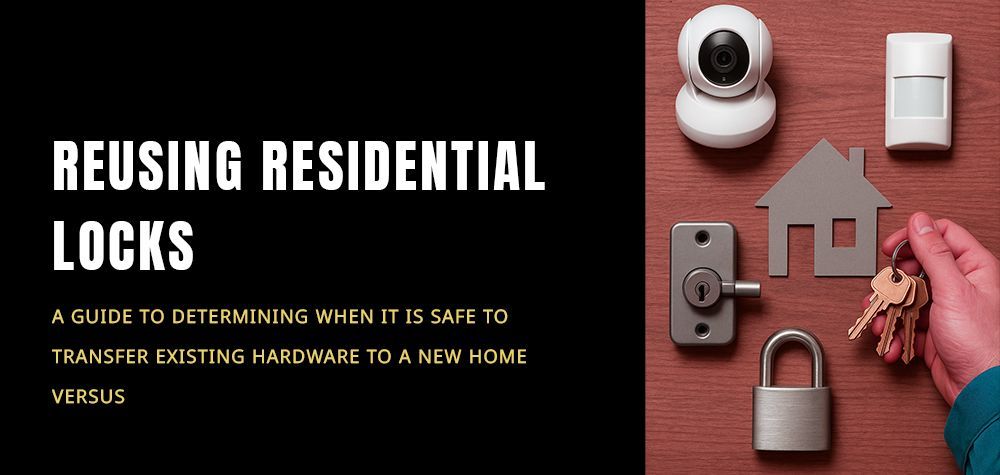10 Signs You Need A Door Lock Replacement
Understanding When It's Time for a Door Lock Replacement
When it comes to the safety and security of your home or property, the condition of your door locks plays a pivotal role. Recognizing the signs indicating the need for a door lock replacement is crucial for maintaining a secure environment for you and your loved ones. From jammed locks to visible damage and recent break-in attempts, various factors can signal that it's time to consider door lock replacement.
Ensuring the integrity of your door locks is paramount in safeguarding your property against potential threats. By being proactive and addressing issues promptly, you can enhance the overall security of your home. Whether it's addressing misplaced keys, responding to a recent break-in, or simply upgrading aging locks, prioritizing door lock replacement is a proactive step toward maintaining a secure living environment.
Read more about High-security door locks!
10 Signs You Need a Door Lock Replacement
The Door Lock is Jammed:
One of the most evident signs that it's time for a door lock replacement is when the locking mechanism becomes jammed or difficult to operate. A jammed lock can be frustrating and inconvenient, potentially leaving you locked out of your home or compromising your security. Whether due to wear and tear, corrosion, or internal misalignment, a jammed lock is a clear indication that the lock's functionality has been compromised. Ignoring a jammed lock can lead to further issues, such as complete lock failure or difficulty in securing your property. Therefore, addressing this issue promptly by opting for a door lock replacement is essential to restore the security and functionality of your entryway.
Difficulty Operating the Lock:
Experiencing difficulty when operating your door lock is another telltale sign that a replacement may be necessary. If you find yourself struggling to turn the key, insert it fully, or engage the locking mechanism smoothly, it could indicate underlying issues with the lock's internal components. Over time, wear and tear, corrosion, or internal misalignment can impede the lock's functionality, making it challenging to operate. Ignoring this difficulty may lead to further complications, such as key breakage or complete lock failure. By recognizing and addressing this difficulty promptly, you can prevent potential security vulnerabilities and ensure the continued safety of your home or property. Therefore, considering a door lock replacement becomes crucial to restore ease of use and maintain optimal security levels.
Read more about Guide to keyless door locks!
Misplaced Keys:
Misplacing keys is a common occurrence that can happen to anyone, but if it becomes a frequent problem, it may be a sign that your door lock needs replacement. Constantly searching for lost keys can be frustrating and time-consuming, potentially leaving your property vulnerable if they fall into the wrong hands. Additionally, repeatedly using spare keys or relying on makeshift solutions increases the risk of security breaches. A new door lock with a fresh set of keys provides peace of mind and eliminates the hassle of dealing with lost or misplaced keys. Upgrading to a modern lock system with keyless entry options can further enhance security and convenience, reducing the likelihood of future key-related issues. Therefore, if misplaced keys have become a recurring issue, it's wise to consider a door lock replacement to safeguard your property effectively.
Recent Break-In:
Experiencing a break-in can be a traumatic event that leaves you feeling vulnerable and unsafe in your own home. After a break-in, it's crucial to assess the security of your door locks thoroughly. Even if the locks were not directly compromised during the break-in, the incident highlights potential weaknesses in your home security system. Intruders may have attempted to force entry by manipulating or damaging the door locks, compromising their effectiveness. In such cases, it's essential to prioritize door lock replacement to restore security and prevent future break-ins. Opting for high-security locks with reinforced construction and advanced locking mechanisms can deter intruders and provide greater peace of mind. Additionally, upgrading to smart locks equipped with real-time monitoring and remote access features adds an extra layer of protection, allowing you to monitor and control access to your home from anywhere. By addressing the aftermath of a break-in with prompt door lock replacement, you can regain a sense of security and take proactive steps to prevent similar incidents in the future.
Read more about how to fix a loose door knob!
It Doesn’t Latch or Lock Right:
One of the most evident signs that it's time for a door lock replacement is when the lock fails to latch or lock properly. This issue may manifest as difficulty in closing the door securely or noticing that the lock mechanism doesn't engage smoothly. When a lock doesn't latch or lock correctly, it compromises the security of your home, leaving it susceptible to unauthorized entry. Several factors can contribute to this problem, including wear and tear, misalignment of the locking components, or internal damage to the lock mechanism. Attempting to force the lock to engage may worsen the situation and potentially cause irreparable damage to the lock or door frame. Therefore, it's essential to address this issue promptly by replacing the faulty door lock with a new, reliable one. Upgrading to a high-quality lock designed for smooth operation and durability can restore the security of your entryway and provide peace of mind knowing that your home is properly protected against intruders.
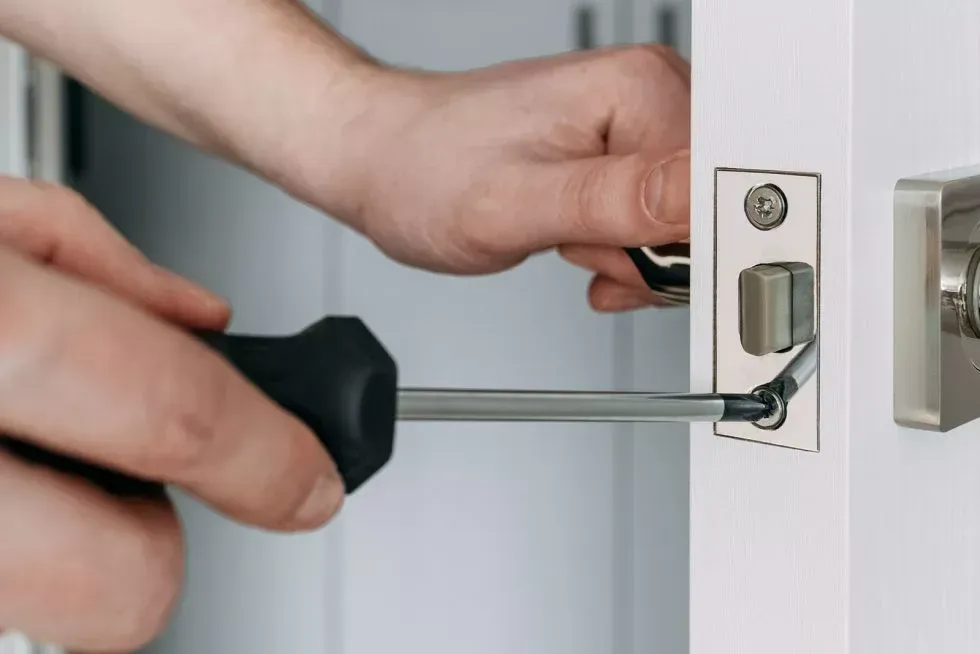
Wear and Tear:
Over time, the constant use of a door lock can lead to wear and tear, affecting its functionality and security. Signs of wear and tear may include visible damage to the lock's exterior, such as scratches, dents, or rust, as well as internal components becoming worn or corroded. This wear can cause the lock to become less reliable, leading to issues such as difficulty turning the key, sticking or grinding noises when operating the lock, or the key not fitting properly into the keyhole. Additionally, worn-out locks are more susceptible to picking, tampering, or forced entry attempts, compromising the overall security of your home. If you notice signs of wear and tear on your door lock, it's crucial to address them promptly by replacing the lock with a new one. By upgrading to a high-quality, durable lock, you can ensure reliable security for your home and minimize the risk of unauthorized access due to worn-out or damaged locks.
You Have Older Locks:
If your door locks are old, they may not provide the level of security needed to protect your home or property effectively. Older locks are more susceptible to wear and corrosion, which can compromise their integrity and functionality over time. Additionally, advancements in lock technology have led to the development of more secure and reliable locking mechanisms that offer enhanced protection against modern burglary techniques. If you have older locks installed on your doors, it may be time to consider replacing them with newer, more secure options to improve the overall security of your home or property. Upgrading to modern locks can provide you with peace of mind knowing that your home is better protected against unauthorized entry attempts and potential security threats.
Moving to a New Home or Apartment:
When you move into a new home or apartment, it's essential to prioritize security, and one of the first steps you should take is to assess the condition of the door locks. While the previous occupants may have handed over the keys, there's no guarantee that they haven't made copies for themselves or others. Additionally, you don't know who else might have had access to the keys in the past, such as neighbors, friends, or service providers.
Replacing the door locks when moving into a new home or apartment is a proactive measure to ensure that you have full control over who has access to your property. By installing new locks, you can eliminate the risk of unauthorized entry by anyone who may have keys from the previous occupants. It's also an opportunity to upgrade to high-security locks that offer better protection against potential break-ins.
Squeaky Hinges:
Squeaky hinges can be more than just a nuisance; they can also indicate underlying issues with your door locks. When hinges squeak, it's often a sign that they're not functioning as they should, which can affect the overall operation of the door. In some cases, the problem may stem from worn-out or improperly lubricated hinges, but it can also be a symptom of misalignment or structural issues with the door itself.
If your door hinges are squeaking, it's essential to address the issue promptly to prevent further damage and ensure the security of your home. While lubricating the hinges may provide a temporary solution, it's essential to investigate the underlying cause to determine if more extensive repairs or replacements are necessary.
The Door Is Warped:
A warped door can pose significant security risks, as it may not close or lock properly, leaving your home vulnerable to unauthorized entry. Warping can occur due to various factors, including changes in humidity, temperature fluctuations, or damage to the door frame. Over time, these factors can cause the door to bend or twist, affecting its alignment and compromising its ability to provide adequate security.
If you notice that your door is warped, it's crucial to address the issue promptly to restore the security of your home. Depending on the severity of the warping, you may be able to correct the problem through adjustments or repairs to the door frame. However, in more severe cases, you may need to replace the door entirely to ensure proper functionality and security. By addressing warped doors promptly, you can maintain the safety and security of your home.
Conclusion:
In conclusion, recognizing the signs that indicate the need for a door lock replacement is essential for maintaining the security and functionality of your home. Whether you're dealing with jammed locks, misplaced keys, or signs of wear and tear, addressing these issues promptly can help prevent security breaches and ensure peace of mind. By understanding the various signs outlined in this guide and taking proactive steps to address them, you can maintain a secure environment for yourself and your loved ones. Remember, when it comes to the safety of your home, it's always better to be proactive rather than reactive.
Call Us Any Time!


